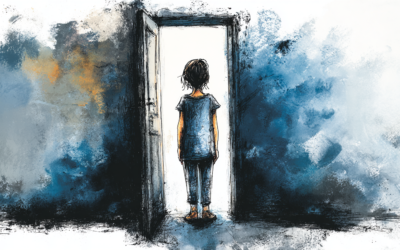In our digitally connected yet increasingly isolated world, the concept of modern loneliness is becoming more prevalent. At the heart of this phenomenon lies the role of identity labels and the significant influence of technology. While labels help individuals navigate their identities and build communities, they also contribute to a sense of fragmentation and loneliness. This article explores how different generations form identities, the proliferation of labels, the impact of technology on these labels, and the benefits and drawbacks of this trend.
The Impact of Digitalization: The rise of digital technology and social media has transformed the way individuals form and express their identities. For Baby Boomers and Generation X, identity was shaped largely by stable, long-term community structures like family, religion, and workplace. However, Millennials and Gen Z have grown up in an era where digital connections often replace these traditional community structures.
Influence of Social Media:
- Instant Connectivity: Social media platforms like Facebook, Instagram, and Twitter allow for instant connectivity, enabling individuals to find and join communities with shared interests and experiences. This has been particularly beneficial for marginalized groups seeking support and solidarity.
- Curated Identities: Social media encourages the curation of personal identities, where individuals present carefully selected aspects of themselves to the world. This can lead to a more diverse and inclusive representation of identities but also to pressures to conform to certain norms and standards.
- Echo Chambers: While social media provides opportunities for connection, it also creates echo chambers where individuals are exposed mainly to viewpoints and identities similar to their own. This can reinforce existing beliefs and reduce exposure to diverse perspectives.
The Role of Labels in Online Communities: Labels have become crucial in navigating online spaces, helping individuals find their “tribes” and build supportive networks. Hashtags, profiles, and groups centered around specific labels (e.g., #nonbinary, #ADHDAwareness) facilitate these connections.
Formation of Online Communities:
- Support and Validation: Online communities centered around identity labels offer support and validation. For instance, a person struggling with their mental health can find understanding and advice in a community that shares their label.
- Advocacy and Awareness: These communities often play a crucial role in advocacy, raising awareness about specific issues and driving social change. Movements like #MeToo and #BlackLivesMatter have shown the power of online communities in effecting real-world change.
- Challenges of Gatekeeping: However, the rise of online communities also brings challenges like gatekeeping, where strict adherence to specific norms is enforced, and deviation is punished. This can create an environment of exclusion and judgment.
Secularization and Loss of Traditional Community Structures: Secularization and the decline of traditional community structures have led individuals to seek new ways of forming identities and finding belonging. The role of religion, extended families, and local communities has diminished, especially among younger generations. This shift has heightened the importance of identity labels as people look for new sources of meaning and connection.
Impact on Young People:
- Fluid and Complex Identities: Younger generations view identity as fluid and complex, often adopting multiple labels to describe their experiences. This reflects a broader acceptance of diversity and intersectionality.
- Mental Health and Identity: The loss of traditional support structures can exacerbate feelings of loneliness and mental health issues. Identity labels can provide a sense of stability and understanding in this context, helping individuals find appropriate support and resources.
- Balancing Tradition and Modernity: The challenge lies in balancing the benefits of traditional community structures with the flexibility and inclusivity of modern identity labels. This requires a nuanced understanding of both the positive and negative aspects of each.
The Double-Edged Sword of Labels: While labels can be empowering and provide a sense of belonging, they also have drawbacks. One significant benefit of labels is the clarity and validation they offer. However, they can also lead to stereotyping, limiting self-perception, and fostering tribalism.
Benefits and Drawbacks:
- Empowerment and Advocacy: Labels can empower individuals to advocate for their rights and needs, driving social change and raising awareness about specific issues.
- Stereotyping and Limitation: On the downside, labels can lead to stereotyping and limiting self-perception. Individuals may feel confined to narrow definitions of themselves, hindering personal growth and self-exploration.
- Tribalism and Exclusion: The rise of identity-based communities can also foster tribalism, where strict adherence to specific norms is enforced, and deviation is punished. This can create an environment of exclusion and judgment, undermining the inclusive spirit of labels.
Labels and modern loneliness are deeply intertwined, with technology playing a crucial role in shaping identities and communities. While labels can offer clarity, validation, and a sense of belonging, they also come with risks of stereotyping, limitation, and exclusion. Understanding the nuanced role of labels in identity formation and community building is essential in fostering a balanced approach that maximizes their benefits while mitigating their potential drawbacks. By embracing the fluid and multifaceted nature of identity, we can create a more inclusive and empathetic society.



